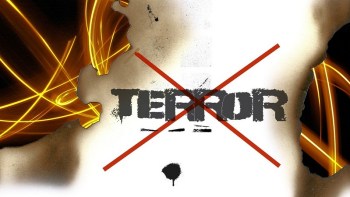This piece is a continuation of this column’s series on “Countering Terrorism in Nigeria”. It became expedient in the face of the increasing challenges posed to the security of the Nigerian State and its citizens by religious and ethnic nationality groups dissatisfied with the status quo, coupled with the continued threats to the safety of Nigerians living in the North-East by Boko Haram, despite recent victories recorded against it by Nigerian security forces.

Image: bykst via Pixabay.com
Before proceeding on this excursion, this column would like to, first and foremost, commend the Federal Government of Nigeria on the impressive strides it has so far made towards checking the activities of Boko Haram. The string of successive victories the federal forces, in conjunction with their sub-regional allies from Cameroon, Niger Republic and Chad have recorded over the insurgents – which seems to have radically transformed the symmetry of the war – is proof of the effectiveness of the latest approaches to the conflict.
However, laudable as the above efforts are, they are not radical and far reaching enough to counter acts of terrorism or deter plans to engage in such acts in the future. They are palliative measures that cannot dissuade extremist groups bent on mass murder from carrying out their pernicious actions in the future. This piece postulates four mutually re-enforcing elements that can help in building resilience against terrorism in Nigeria. The four elements are: PREVENTION, which will foster a Nigeria that is resistant to violent extremism; DETECTION and DENIAL, which will ensure that Nigeria is able to identify terrorist acts early, and make itself a difficult target for would-be terrorists; while the RESPONSE element will engender a resilient society that is able to bounce back quickly when terrorist incidents occur.
The PREVENTIVE element focuses on the factors that motivate individuals who engage in, or have the potentials to engage in, terrorist activities at home and abroad. Nigerian security agencies must strive to diminish the factors that contribute to terrorist activities by engaging with individuals, communities, and international partners, and through research to better understand these factors and how to counter them. The desired outcome of this element is to build resilience in the psyche of Nigerians to violent extremism and radicalization; effectively challenge violent extremist ideologies by producing effective narratives to counter it; and reduce the risk of individuals succumbing to violent extremism and radicalization.
DETECTION, on its own, is a knowledge powered element. It is based on the thinking that countering terrorist threats requires knowledge of the terrorist themselves, their capabilities and the nature of their plans. It also seeks to identify the supporters of terrorist activities. This can be done through investigation, intelligence operations for analysis, which can also lead to criminal prosecution. Detection requires strong intelligence capacity and capabilities, as well as a solid understanding of the strategic drivers of the threat environment, and extensive collaboration and information sharing with domestic and international partners. The desired outcome of this element is to identify terrorist threats in a timely fashion; put in place an efficient alert mechanism that ensures that terrorist activities are effectively monitored and reported to the authorities; and that information is effectively, appropriately and proactively shared within Nigeria, with key allies and non-traditional partners.
The DENIAL element aims to deny terrorists the means and opportunity to carry out their activities in other to protect Nigerians and Nigerian interests. Investigation and law enforcement actions, prosecutions, and domestic and international cooperation are necessary to mitigate vulnerabilities and aggressively intervene in terrorist planning. The end goal is to make Nigeria and Nigerian interests more difficult targets for would-be terrorists. The desired outcome of this element is to develop a strong ability to counter terrorist activities at home and abroad; speedily conclude prosecutions; diminish the means and opportunity to support terrorist activities; and maintain strong cooperation with key allies and non-traditional partners.
Lastly, is the RESPONSE element, which aims to respond adequately, quickly, and effectively to terrorist activities and mitigate their effects. Nigeria can do this by putting in place a fluid emergency response system to mitigate the frightening effects of terrorist acts; develop a first strike capability to either act to forestall an impending terrorist act, based on incoming intelligence, or to immediately commence the process of tracking down perpetrators of terrorist acts; and launch public enlightenment campaigns to raise public awareness about terrorist activities in order to open up windows of trust between the public and security services, and prepare the civil populace to absolve the shocks of terrorist acts when they occur. The desired outcome of this element is to deter would-be terrorists from carrying out their dastardly acts, to make them insecure if they actually do, and to embolden Nigerians to stand together against terrorism and its perpetrators.
As opined at the beginning of this excursion, government’s anti-terrorism measures are well-intentioned, but they need to be more comprehensive and futuristic to be effective tools for fighting a foe as formidable as the new face of terrorism currently facing Nigeria. The counter-terrorism strategies treated in this excursion are suggestions that can be added to what the government has already done, as it marries ideas from several practical examples the world over.
The fight against terrorism and other acts of violent criminal behavior requires a multi-dimensional approach, thus, necessitating a combination of strategies from diverse sources. If square pegs are put in square holes by those charged with securing the lives and property of Nigerians, terrorism and other violent acts can be fought to a standstill.
GOD SAVE NIGERIA!

